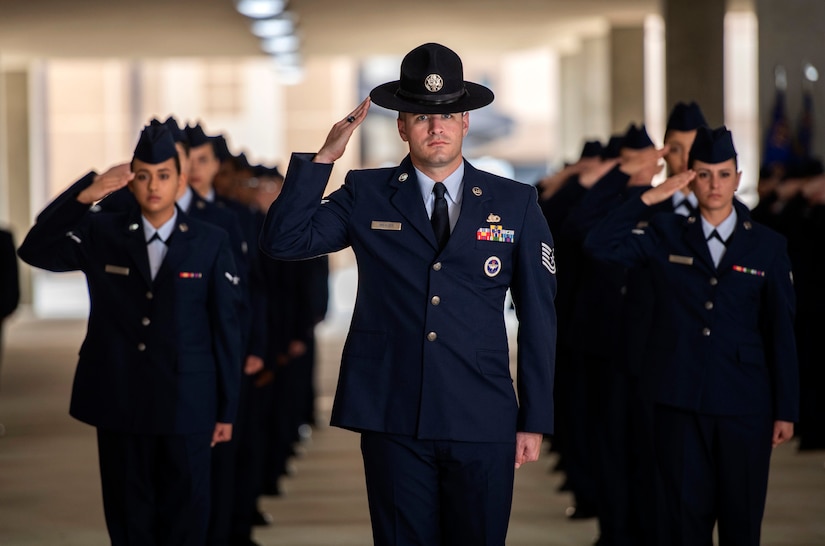April 10, 2020 | BY David Vergun , DOD News
The Air Force is taking a proactive approach to reduce the
risk of trainees contracting COVID-19, a top Air Force general said.
Air Force Lt. Gen. Marshall B. "Brad" Webb,
commander of the Air Education and Training Command, told Pentagon reporters by
telephone today about the new approach the Air Force is using to conduct a
variety of training during the COVID-19 pandemic.
To help maintain social distancing, Webb said, the Air Force
is accepting only 460 new trainees per week instead of the usual 600 to 800. In
addition, starting with those who arrived March 17 at Joint Base San
Antonio-Lackland in Texas, enlisted basic trainees are under restricted
movement in their first 14 days and have no contact with trainees who started
training after that 14-day period, he noted.
No new recruits reported to basic military training last
week, he said, and that will continue until the Air Force has had time to
implement new procedures to protect against COVID-19. This period of time was
also needed to sanitize dormitories, dining facilities and other spaces, he
added.
The Air Force has implemented medical screening at both
initial entry and at the end of the two-week period of restricted movement,
Webb told reporters.
Basic training has been shortened from eight and a half
weeks to seven weeks to maximize training effectiveness and space utilization,
the general said, achieved by spending less
time on drill and ceremony training and streamlining the process of
issuing uniforms.
Basic training is also being conducted at Keesler Air Force
Base, Mississippi, starting this week, to help in increasing social distancing
at Joint Base San Antonio-Lackland, which had been the Air Force's sole basic
training venue, he said.
After basic training, airmen receive technical training in
one of their 265 military occupational specialties at 78 locations across the
United States and a few overseas locations. Commanders at these technical
training sites have been directed to similarly modify their courses to reduce
the risk of COVID-19, Webb said.
Modifications include splitting training into shifts to
reduce class sizes, using distance learning more often, and moving classrooms
outdoors, he noted. Training that can only be done in close quarters or large
groups has been deferred.
Officer Training School at Maxwell-Gunter Air Force Base,
Alabama, has adopted the same procedures as enlisted basic training, the
general said. Meanwhile, he added, ROTC cadets are completing their training
through distance learning, and recruiters are using innovative social media
techniques to communicate with prospective airmen. The Air Force may retain
aspects of distance learning and social distancing necessitated by the pandemic
in its training after the pandemic is over, Webb added.
As of today, the Air Force had only five cases of COVID-19
among trainees and none among instructors, he said, crediting that to the
precautions the Air Force is taking.








No comments:
Post a Comment